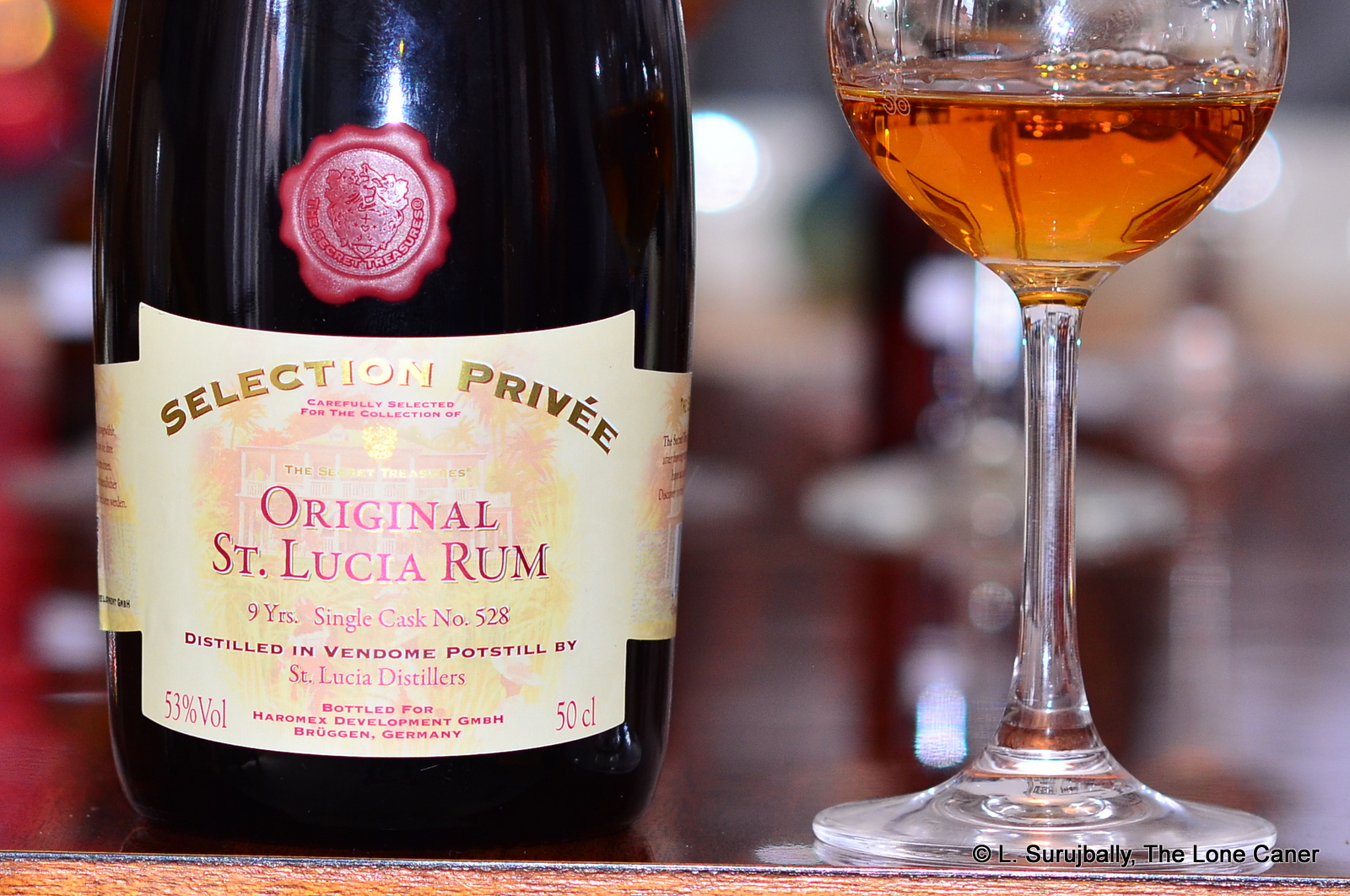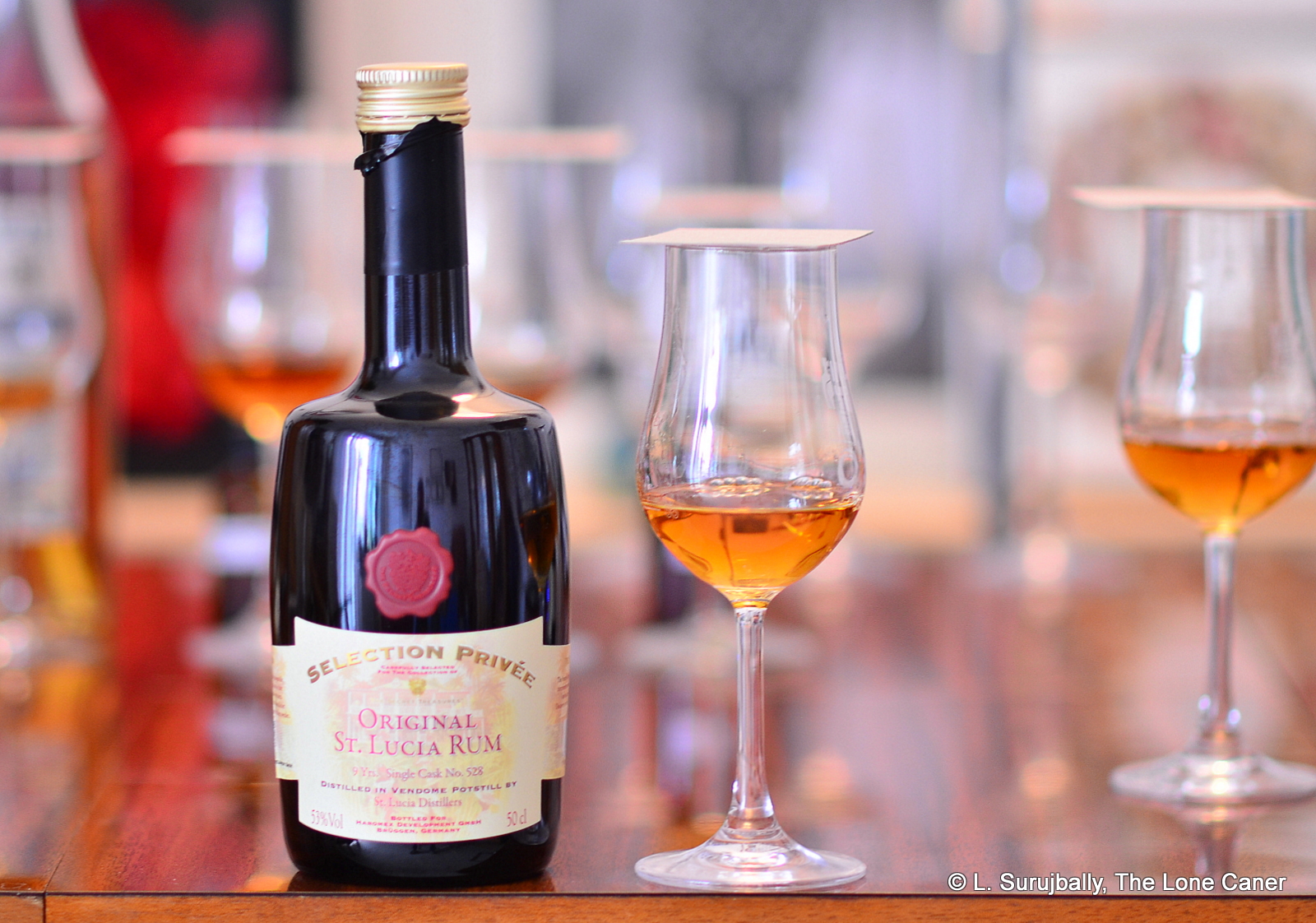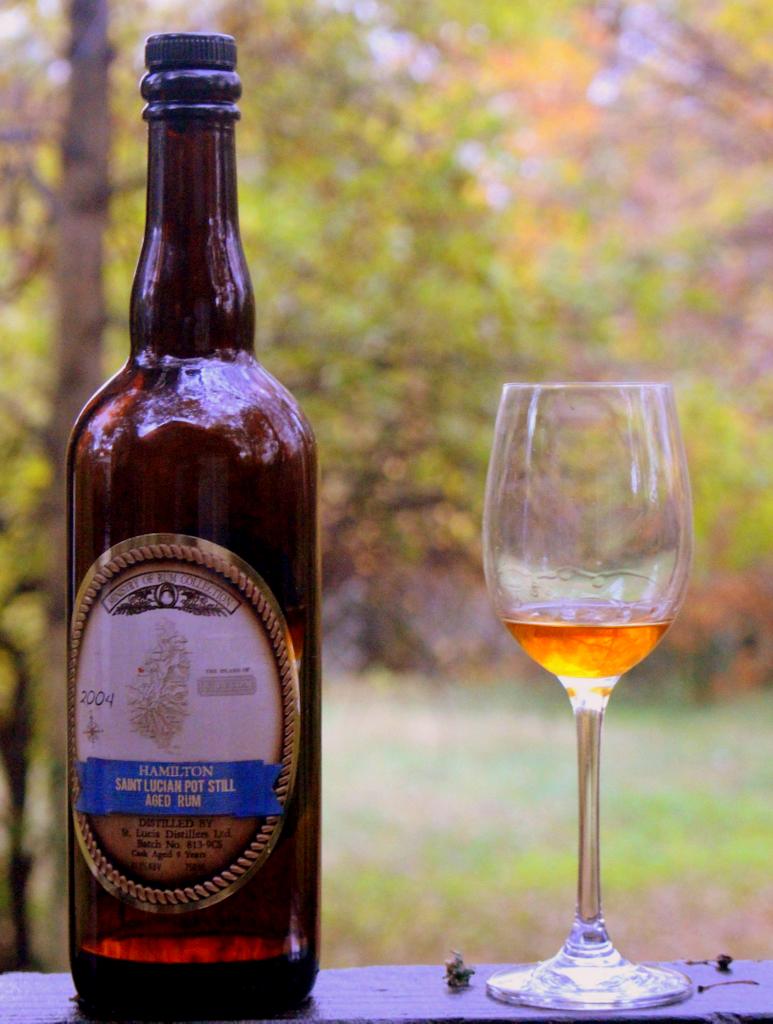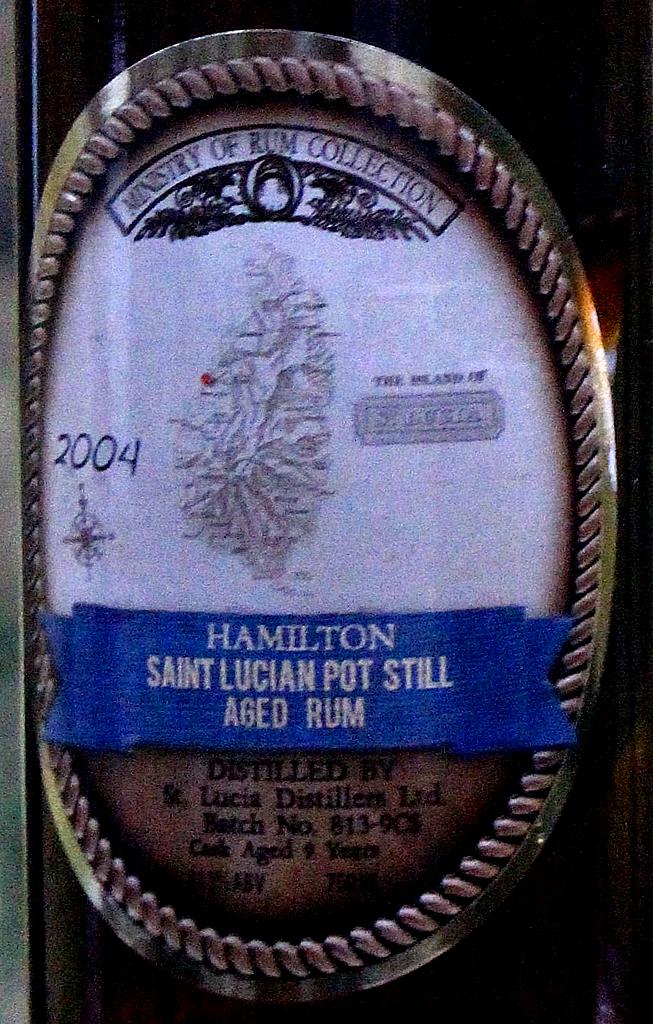#373
In recent years, St Lucia and its eponymous distillery has been inching towards its own understated cult status: pot still rums, no additives, a finish-variation here or there, good barrel strategy, all round good stuff, and somehow (don’t ask me why) still lacks the cachet of the big four (Trini Caronis, Guyana’s DDL, Bajan FourSquare and, of course, dem Jamaicans). Many of my rum chums swear by their rums, however, whether made by independents or issued on the island, and I can tell you, they deserve the plaudits, because they’re good.
Assuming you’ve already gone through various batches of the Admiral Rodney, Chariman’s Reserve, Forgotten Casks, and any of the 1931 series made by St. Lucia Distillers — or have given Ed Hamilton’s 9 year old 2004 cask strength a whirl — and are still hankering after something with equal or greater impact, I’d strongly recommend you go to the full proof offerings in general, and this one in particular. Why? Because independent bottlers are not blenders and only satisfy themselves with a single barrel (usually) that conforms to their standards. They’re not trying to move huge quantities of rum and stock the shelves of supermarkets for purchase by the lowest common denominator, they’re trying to sell small outturns of exactingly chosen rums. And when you smell and taste something like this, you can see why they’re so good and why they command both cachet and price.
 If you doubt me, please sample Secret Treasures’ take on a golden nine year old 53% beefcake from St. Lucia Distiller’s Vendome pot still. The opening aromas are heavenly – old leather shoes, lovingly polished (and without any sweaty socks inside), combined with acetone, glue and nail polish remover that were present but not overbearing and gracefully retreated over time, giving over the stage to fruitier parts of the nose. These consisted of delicate florals, vanilla, raisins, prunes and a little anise and oak. Nine years was a good age, I thought, and kept the tannins present and accounted for, but not dominant – that part of the nose simply melded well and at no point was it ever excessive.
If you doubt me, please sample Secret Treasures’ take on a golden nine year old 53% beefcake from St. Lucia Distiller’s Vendome pot still. The opening aromas are heavenly – old leather shoes, lovingly polished (and without any sweaty socks inside), combined with acetone, glue and nail polish remover that were present but not overbearing and gracefully retreated over time, giving over the stage to fruitier parts of the nose. These consisted of delicate florals, vanilla, raisins, prunes and a little anise and oak. Nine years was a good age, I thought, and kept the tannins present and accounted for, but not dominant – that part of the nose simply melded well and at no point was it ever excessive.
As for the palate, well now, that was relatively thick, smooth, warm, a little sweet, and all-over pleasant to try. What made it succeed is the balance of the various components, no single one of which dominated — though that in turn was at the expense of some crispness and a feeling that things were dampened down, perhaps too much. Here, citrus and apple cider were the opening notes (unlike the John Dore 9 year old variation by the same maker, where other flavours were at the forefront). These were followed by green peas and avocados (seriously!), some brine, vanilla, nutmeg, pineapples and cherries, with some smoke and oaken flavours which remained where they should, in the background. It deserves some patience and careful sipping to bring out the full panoply of what was available, so don’t rush. The finish was surprisingly short for a rum bottled at this strength, and here the tart notes take a step back and the softer stuff is more noticeable – aromatic tobacco, wine, grapes, cinnamon, and just a bare whiff of tannins and lemon peel.
Overall, it was a really well made product and I liked it enough to try it several times over a period of two days just to nail down the finer points, but eventually I just put away my notebook, and enjoyed it on the balcony by itself with no other motive beyond having a pleasant, tasty, neat shot of rum.
 Secret Treasures, a brand originally from an indie out of Switzerland called Fassbind, has been on my radar since 2012 when I tried their amazing Enmore 1989 rum and initially thought it was “okay”, before it grew on me so much over a period of days that I polished the entire thing off on my own (while fending off my mother’s grasping hands, ‘cause she liked it too damned much herself). Fassbind was acquired in 2014 by Best Taste Trading GMBH, yet curiously neither old nor new company website makes mention of the rum line at all – and the label on this bottle speaks of a German liquor distribution company called Haromex as the bottler, which some further digging shows as acquiring the Secret Treasures brand name back in 2005: perhaps Fassbind or Best Taste Trading had no interest in the indie bottling operation and sold it off.
Secret Treasures, a brand originally from an indie out of Switzerland called Fassbind, has been on my radar since 2012 when I tried their amazing Enmore 1989 rum and initially thought it was “okay”, before it grew on me so much over a period of days that I polished the entire thing off on my own (while fending off my mother’s grasping hands, ‘cause she liked it too damned much herself). Fassbind was acquired in 2014 by Best Taste Trading GMBH, yet curiously neither old nor new company website makes mention of the rum line at all – and the label on this bottle speaks of a German liquor distribution company called Haromex as the bottler, which some further digging shows as acquiring the Secret Treasures brand name back in 2005: perhaps Fassbind or Best Taste Trading had no interest in the indie bottling operation and sold it off.
Whatever the case, the changes in ownership and always small outturn even in Europe meant that the Secret Treasures line are something like Renegade or Murray McDavid rums, and exist in the shadows cast by the Scots, Bristol Spirits, Rum Nation, Velier, Samaroli, the Compagnie, etc (and the new bloods like Ekte and so on). But it seems that no matter who the owner is, they continue to bottle small batches of single barrel rums, and let me tell you, they’re worth having. This rum and its twin, all by themselves, have made me enthusiastic about cask strength St. Lucian rums all over again.
(86/100)
Other notes
According to Maco Freyr, who reviewed this rum in his customary and exacting depth of detail back in early 2016, date of distillation is 2005.
A somewhat irrelevant aside:
Aide from diversifying one’s collection, there are very good reasons why passing around one’s acquisitions generously, without reservation and irrespective of the rarity, is a good thing – it builds goodwill, it shares the good stuff around among true aficionados, it cuts down on costs for others not so fortunate, and most of all, the reciprocity of people who are on the receiving end of your geriatric jolly juice can often be off the scale. I’ve shared most of my Skeldon 1973, PM 1974, Chantal Comte 1980, Trois Rivieres 1975, and actually given away a full bottle of a Velier Basseterre 1995 and a Longpond 1941 (with the admonition that the happy recipients in their turn should pay it forwards, as they have).
It’s precisely because of such an attitude that I got sent two of the most interesting bottles in months, if not years: two Secret Treasures St. Lucia rums, both nine years old: this one, and the other (which I’ll look on in the next review) from a John Dore pot still, both at cask strength. To Eddie K., who sent them without warning, advertising, fanfare or expectations, a huge hat tip. You da man, amigo.


